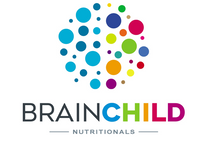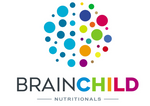Can probiotics help with autism?
Probiotics are live bacteria that line your digestive tract, helping you digest food and regulating the immune system. They can also help with some mental health issues like anxiety and depression. New research suggests that probiotics and gastrointestinal supplements may help in the treatment of children with autism.
The study on probiotics and autism
A new study looked at 14 participants who had some form of autism spectrum disorder (ASD). The study found that the probiotic group showed better social skills than those in the control group. It is important to note, however, that this was a small-scale study on only 14 people so more research needs to be done before we know if probiotics are actually helpful or not.
The researchers found that probiotics improved social skills in kids with ASD by increasing levels of serotonin which regulates mood, appetite, and sleep. Dr. Chrystelle Saint Louis of the Department of Life Sciences at Centre International De Recherche Agronomique in France said, "We thus probed into deeper molecular routes for probiotics' [effects] on autism as probiotics can change behavior by acting on the brain neurochemistry."
The gut - brain connection
One probiotic strain has been shown to have a direct effect on GABA receptors. When probiotics are taken up by the probiotic cell it produces a substance called GABA. This substance is a neurotransmitter that is important in brain development and healthy brain functioning. It can affect learning and memory, balance emotions, and may play a role in the regulation of movement. GABA is not found naturally in food or supplements, but probiotics can provide it if they are present in the gut.
A probiotic on its own is not enough to treat autism spectrum disorder (ASD). In order for them to be effective at treating ASD they must be paired with an adequate diet based on exclusion allergies, and there must be a proper balance of probiotics.
The Human Microbiome Project (HMP) was conducted by the National Institutes of Health from 2007-2012. The purpose of the project was to identify, characterize, and map all the microorganisms that live in our bodies so scientists could understand their role in human health. It was found that probiotic bacteria were important for metabolic health, immune system function, digestive health, and even down to the very way we look.
One study followed 9 children with ASD for 8 weeks and then observed probiotics influence their metabolism. They suggested probiotics could play a role in detoxifying poisonous chemicals like lead from the body. In another study probiotics were associated with lower anxiety and stress.
In the future, probiotics may play an important role in treating disorders like ASD. They could help improve symptoms of autism by regulating neurotransmitters in the brain and improving digestive health, as well as helping to restore balance to the microbiome. Check out our basic support, high support and maximum support probiotics.
Why sulfation is important for people with autism
Sulphation is the process of converting sulfur-containing amino acids to their derivatives, including cysteine and methionine. Sulfation is considered to be essential in most if not all organisms. It has been found that sulfation plays a major role in neurodevelopmental disorders such as autism.
One study compared levels of sulphated amino acids in children with ASD when compared to healthy children. The scientists concluded that children with ASD have lower levels of sulphated amino acids in comparison to healthy kids.
A healthy gastrointestinal tract is lined with a protective barrier of sulfate that appears to provide resistance to a wide range of biological, viral/immunological, dietary, inflammatory and toxicological challenges. Compromises in sulfation chemistry from toxin exposure may diminish this natural resistance that normally provides a protective cell barrier function in the GI tract as well as the other organs and tissues of the body.
IntestiMend is an innovative sulfur, gastrointestinal, and detoxification support supplement that utilizes a broad range of sulfur-based accessory nutrients. Its active ingredients are sulfur-containing biotin, glucosamine and chondroitin sulfate, Methylsufonylmethane (MSM), a very small amount of N-acetyl cysteine as a synergist, along with calcium D-glucarate that helps to detoxify the gut and catalyze the formation of glycosaminoglycans, N-acetyl glucosamine as an anti-microbial and gut anti-inflammatory, and D-ribose, the sugar molecule backbone of the ribonucleic acid of DNA and RNA.
In summary
Improving gut health through probiotics and supplements like Intestimend plays an important role in the treatment and management of ASD symptoms. By helping restore balance to the microbiome, we can help our loved ones manage their symptoms effectively.







